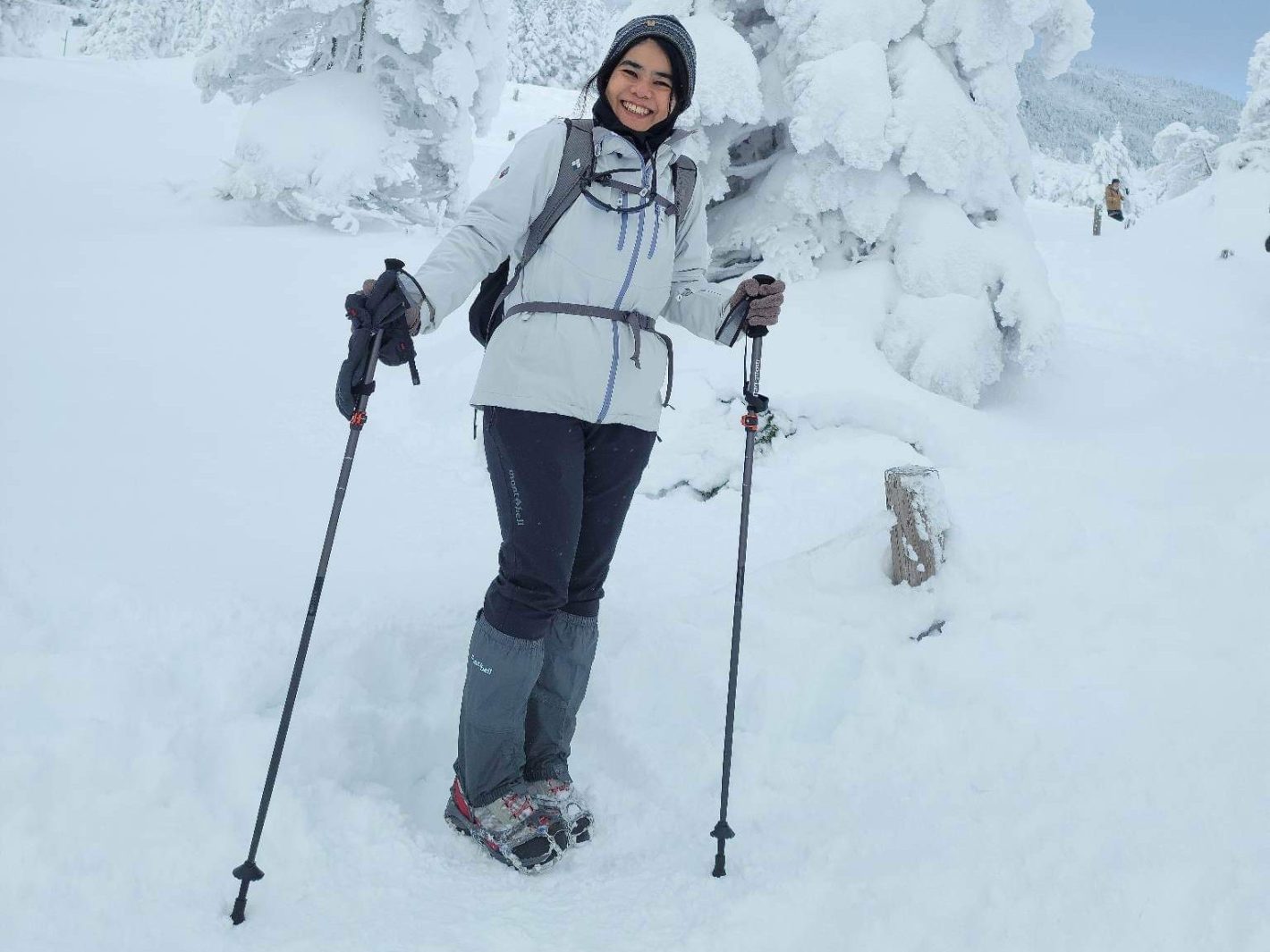Yin Minn PaPa, IAS Associate Professor
Researcher’s Profile
・Yin Minn PaPa, IAS Associate Professor at Information and Physical Security Research Unit
・Research Interest:Cybersecurity

IAS associate professor Yin Minn PaPa came to Japan as a foreign student in 2011 and spent five years at Yokohama National University (YNU) studying for a master’s degree and a doctorate. After obtaining her doctorate at YNU in 2016, she worked as a researcher at a foreign-affiliated consulting firm. In 2022, she returned to her old school as a specially appointed professor (associate professor) at the Physical Security Research Unit of IAS.
After graduating from a university in Myanmar in 2006, where she majored in IT, Yin Minn PaPa worked as an engineer in her country. During that time, she experienced a cyberattack in her workplace, which sparked her interest in cybersecurity. She subsequently elected to study at YNU, which excels in research in information security and offers generous scholarships, where she studied for her master’s degree and her doctorate. Through her research today, she works to advance knowledge and technology to protect individuals and businesses from cyberattacks.
What do you think about the research environment at IAS and the atmosphere there?
There are many opportunities for international exchanges at the IAS Information and Physical Security Research Unit. The unit has connections with universities in the United States, Germany, the Netherlands, and other countries, and we have discussions and write papers with talented researchers from abroad. In September 2023, a professor from the Netherlands joined our research unit and we plan to conduct research together. I myself was at a university in the Netherlands in January 2023 to do research. A professor from Université Savoie Mont Blanccame to IAS in May to give lectures and participate in discussions. The members of our research unit are thus always involved in international research and working to present papers at international academic conferences. I attended an academic conference in the United States in August and presented a paper together with a student from the department. As a rule, expenses related to research and academic conferences of this kind are covered by the research unit’s budget, and we also get financial support from the research unit for the necessary research equipment.
The field of security in Japan tends to be overwhelming male, but even as a female and a non-Japanese, I have never felt any barrier of any kind. There is no language barrier, and communication goes smoothly. The research environment in my unit is friendly. The staff and professors are all very kind. Security expert professor Tsutomu Matsumoto is almost like a father to me and I’ve also been able to develop close relationships with the other professors. The research environment is well resourced and many of the professors are deeply involved in their research. Thanks to this, I can engage in deep discussions and receive support to direct my research in a better direction. The unit’s atmosphere makes it possible to concentrate on research, and I’m truly grateful for that.
Please describe your current research
I’m currently a research advisor to the two student research groups attached to the lab of professor Katsunari Yoshioka, principal investigator at the unit. One research group researches threat intelligence, collecting and analyzing information about fraud on SNS and other platforms, sale of malicious services such as malware or leaked information by cybercriminals, and sale of illicit drugs or leaked credit card details, in order to learn about the cybercrime ecosystem. The other, the new technology and security group, conducts research on cyberthreats originating from new technologies like generative AI or blockchain, for example the potential the misuse ChatGPT and other forms of generative AI to automatically generate malware, or cybercrime misusing Smart Contract, a program executed on blockchain.
How do you feel after having received an academic society award “IEICE Technical Committee on Information and Communication System Security (ICSS) – ICSS Research Award”?
When I first arrived at IAS, everyone in the research unit was already having discussions for the purpose of writing the paper. I joined the discussions partway through, and I was able to contribute when the final touches were being put on the paper. I had received an academic society award when I was a student, but this time, I received the award thanks to the cooperation of my students, in my position as research advisor, and that made me even happier than when I had received an award as an individual.
What are you looking forward to now, as far as your life in Japan is concerned?
I’ll make the most of Japan’s mountains, the greenery of the YNU campus, and my work as a research advisor. I like mountain climbing, and almost every month I enjoy pure mountain air and the wild grasses and flowers there. I’m looking forward to discovering new scenery on new mountains in the future.
I also enjoy the wonderful environment that the greenery on the YNU campus provides. In my student days, when my research was stuck, I would walk around the campus and its green surroundings, which provided mental refreshment. It was often the case that new ideas came to me during my walks. I’m no longer a student, but I feel happy to be in such a green environment every day. I commute to work with a smile, thinking of the beautiful surroundings on campus, and I hope to enjoy them even more from now on.
I also feel really motivated in my work as a research advisor. Unlike researchers who concentrate on their own research, a professor is responsible for directing students’ research in a positive direction. Every student has developed in a different environment, so they all have different ways of thinking, so I need to provide appropriate guidance that matches how they think. That makes it difficult for me sometimes, but I am very happy to see my students further develop their research abilities, which makes it all worthwhile for me. I’m looking forward to enjoying my role as a teacher.

How do you feel about your life so far, and what are your future goals in life?
Well, I do have some regrets, but now I want to live my life focusing on what I need to be doing. The word “present” has two meanings: one is “now” and the other is “gift.” If I work hard and enjoy what I’m doing now, I may receive a good future as a gift.
Right now, my country, Myanmar, is in the throes of a civil war. Many students have been caught up in the fighting, and university education is suffering. When my country is at peace again, I want to contribute to its recovery and reconstruction mainly by supporting education. That is one of my future life goals.

